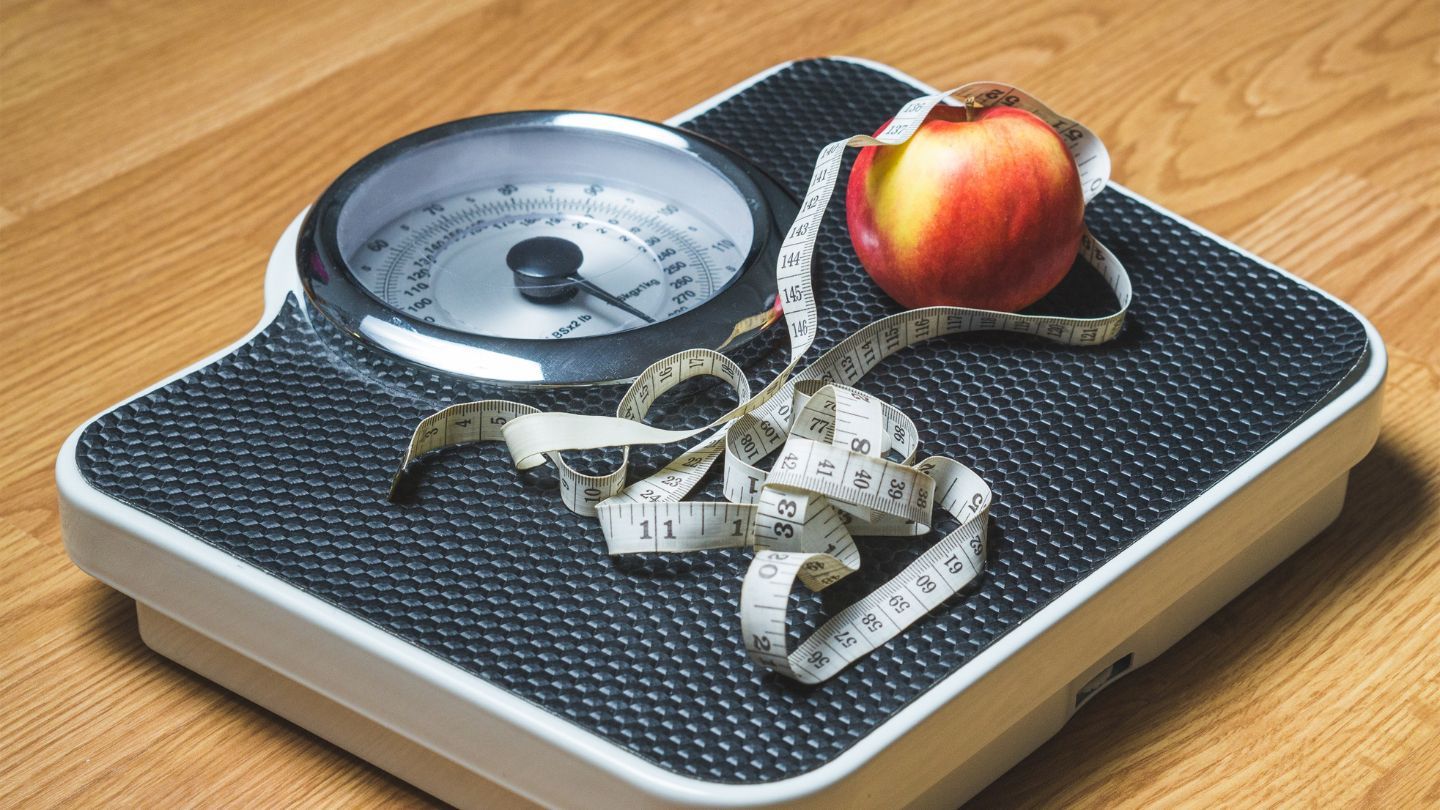
Effective Strategies on How to Lose Weight After Bariatric Surgery
Bariatric surgery is just the beginning. The real challenge lies in losing more weight and maintaining it. So, how to lose weight after bariatric surgery? This blog outlines crucial strategies like understanding your new stomach, adopting a high-protein diet, and avoiding liquid calories.
Key Takeaways
• Bariatric surgery results in a smaller stomach pouch, necessitating adjustments in food intake and the importance of understanding changes in digestion for effective weight loss.
• A high-protein diet is crucial post-surgery for healing, muscle preservation, and appetite management; incorporating protein-rich foods and avoiding liquid calories supports this goal.
• Long-term lifestyle changes, including meal planning, regular exercise, and a support system, are crucial for sustaining weight loss and maintaining health after bariatric surgery.
Understanding Your New Stomach
Undergoing bariatric surgery results in a considerable reduction in stomach capacity, leading to the formation of a smaller pouch that holds only 1 to 2 ounces of food. This significant decrease in the amount of food available limits how much you can eat, which is crucial for losing weight after undergoing such procedures. Bariatric patients must acclimate themselves to these significant changes as their digestion slows and they consume fewer calories. Seeking advice from a bariatric surgeon is highly beneficial throughout this journey, particularly if you are contemplating any form of weight loss surgery, such as a gastric sleeve.
It’s vital to be aware of how these modifications affect your body. Foods high in carbohydrates may swell within the new stomach pouch and cause discomfort or digestive complications. Gastric bypass surgery also alters calorie absorption rates, influencing digestion. Understanding these alterations plays a crucial role in adjusting dietary habits favorably for sustained weight management and improved health outcomes after surgery.
Importance of a High-Protein Diet

Following bariatric surgery, maintaining a diet high in protein is crucial for recuperation and sustained well-being. Protein not only promotes healing but also helps maintain muscle mass and suppresses appetite, underscoring its importance in post-operative dietary regimens. By focusing on consuming high-protein foods at the start of each meal, you can ensure your food consumption is packed with vital nutrients.
Aiming for an intake of three ounces of protein per meal will help fulfill daily nutritional goals. This amount resembles the size of a standard deck of cards. Optimal choices include lean cuts of meat, poultry, seafood, eggs, as well as plant-derived proteins such as tofu. To supplement protein levels between meals, consider options like protein shakes or bars. Adding nonfat dry milk powder into recipes is an effective method to increase the grams of protein across various meals.
Read more: What Foods to Avoid After Bariatric Surgery?
Avoiding Liquid Calories
Calories from liquids can stealthily undermine your efforts to lose weight. These beverages often lack nutritional value while adding substantially to your daily calorie consumption. It’s crucial to avoid high-calorie, sugary drinks and limit intake of simple sugars, alcohol, caffeine, and fizzy drinks. Particularly after surgery, it is imperative to refrain from alcohol due to its quick absorption rate and adverse effects.
Ingestion of liquids before or with meals may cause the passage of food through your stomach pouch to occur too quickly, undermining the sensation of satiety you should experience after eating. To enhance meal satisfaction, separate drinking fluids from eating by at least 30 minutes. Opt for non-caloric beverages like water when hydrating so as not to add extra calories.
Using straws might lead air into your stomach, which could result in discomfort. They are better avoided. By eschewing liquid calories — especially carbonated beverages — you enable yourself to concentrate on nutrient-rich solid foods that assist in achieving weight loss targets and help stave off subsequent weight gain post-surgery.
Eating Small but Frequent Meals
Consuming frequent, modest-sized meals can aid in regulating blood sugar levels and controlling appetite after a surgical procedure. This method avoids the unpleasant sensation of consuming too much food at once while assisting you in making wiser nutritional choices throughout your day. Preparing your meals beforehand helps curb spontaneous snacking and keeps you aligned with your nutrition objectives.
Incorporate proteins and fiber into your snacks to increase feelings of fullness and ward off intense cravings. It’s important to stop eating as soon as you feel satiated so that you can properly recognize and react to signals of hunger from your body. By being mindful about when and how much you eat, including sticking to small meal portions, not only do these practices promote weight loss, but they also contribute to sustaining a healthy weight over an extended period.
Exercise Routine Post-Surgery

Incorporating physical activity into your regimen is essential for recovery and achieving weight loss objectives after bariatric surgery. It enhances the speed of recuperation, augments endurance, and minimizes potential post-surgery risks such as pulmonary emboli and venous thromboses. Beginning with walking soon after your procedure can be a highly beneficial means to initiate an exercise routine during the initial weeks following surgery.
As you advance on your journey, adding structured workouts like utilizing weight machines, employing free weights, working with resistance bands, and engaging in strength training becomes important. These types of exercises are key in constructing lean muscle mass while also elevating metabolic rates—both pivotal factors for maintaining long-term weight reduction. Strive to dedicate between 30-45 minutes most days to exercising, progressively intensifying these sessions according to how well your body adjusts.
The importance of both cardiovascular activities and strength conditioning cannot be overstated. They each provide distinct benefits—cardiovascular work aids heart health improvement alongside stamina enhancement, while strength routines bolster bone robustness as well as metabolic function. Committing to a comprehensive workout plan suited specifically to where you are in terms of recovery will assist significantly toward fulfilling desired weight loss goals.
The Role of Vitamin and Mineral Supplements
Post-surgery, many patients experience nutrient absorption issues, particularly with vitamin B12, calcium, and iron. This makes vitamin and mineral supplements essential to ensure adequate nutrition due to the reduced food intake. Common supplements for gastric bypass patients include a complete multivitamin, calcium with vitamin D, iron, and vitamin B12.
Initially, these supplements should be in chewable or liquid form to facilitate easier absorption as your body heals. Regular blood tests are crucial to monitor micronutrient levels and prevent deficiencies.
Incorporating these multivitamin supplements into your daily routine supports your overall health and helps avoid complications related to nutrient deficiencies.
Mindful Eating Practices
Conscious consumption is a valuable strategy for controlling your diet after undergoing gastric bypass surgery. It entails focusing intently on the process of eating, which enhances your ability to detect signals of hunger and satiety. Meticulously chewing your food is essential because improperly broken-down chunks can lead to complications and unease.
To immerse yourself completely in the experience of eating–savoring its flavor, texture, and scent, refrain from distractions such as watching TV or reading during meals. This approach not only helps mitigate nausea and discomfort following gastric bypass but also fosters the formation of new, beneficial dietary patterns. Steer clear of any edibles that could provoke uneasiness.
Embracing mindful eating cultivates a stronger bond with what you eat while fostering improved digestive health and meal contentment.
Managing Emotional Eating

Managing emotional eating is a key hurdle following bariatric surgery. It’s important to discern the underlying emotional catalysts that prompt snacking, which helps separate actual hunger from the urge to eat driven by emotions. Establishing robust coping mechanisms and leveraging support from groups dedicated to post-bariatric individuals are vital steps in overcoming these obstacles.
Seeking professional assistance through therapy can equip you with personalized strategies for confronting emotional triggers associated with food intake. Participating in bariatric-focused support communities offers both educational resources and insight into others’ journeys, greatly aiding your capacity to navigate emotional eating.
Confrontation of such eating habits is essential for averting weight gain after initial loss and maintaining adherence to your intended weight reduction objectives.
Staying Hydrated
It is essential to maintain adequate hydration following bariatric surgery since it’s common to confuse feelings of thirst with hunger signals, which may result in eating when it isn’t needed. To facilitate proper hydration and overall well-being, at least 2 liters of fluid should be consumed each day.
To preserve the sense of satiety provided by your stomach pouch, avoid consuming liquids while eating, as this can accelerate the passage of food through the pouch and diminish feelings of fullness. Liquids should be ingested between meals instead, focusing on those without calories so as not to increase your daily caloric intake unnecessarily. Including solid foods during mealtime also contributes to prolonged fullness and helps regulate calorie consumption.
Maintaining good hydration practices plays a significant role in effectively controlling food portions and enhances weight loss progress by eliminating confusion between the sensations of hunger and being thirsty.
Avoiding Common Pitfalls
To preserve the advancements made after surgery, it’s critical to steer clear of certain dietary traps. It is important to eschew sugary foods and beverages completely because not only do they add unnecessary calories, but also they can cause dumping syndrome—a condition you’ll want to avoid. High-fat food items should be consumed sparingly due to their potential for causing gastrointestinal discomfort.
Opting for whole grains over simple carbohydrates is advisable in order to sustain more consistent blood sugar levels and stave off feelings of hunger. Keeping a detailed record of your daily nutrition and physical activities serves as an effective tool in strengthening healthy habits, ensuring that you adhere closely to your nutritional objectives. Cutting out sugar is vital in achieving these aims.
For most individuals who have undergone bariatric procedures, routine appointments with their specialized healthcare team are imperative. These check-ups aid in tracking one’s progress and provide an opportunity for early intervention on any emerging concerns, aligning with recommendations set forth by the Obesity Medicine Association.
Long-Term Lifestyle Changes
It is essential to embrace permanent lifestyle modifications for enduring weight loss and health improvements following bariatric surgery. Careful meal and snack planning can help avert dietary mishaps and facilitate the choice of nutritious food options. Paying close attention to serving sizes is critical in preventing accidental overconsumption while striving for a well-rounded diet.
Regular physical activity plays a pivotal role in keeping the weight off. Strive to engage in 30-45 minutes of vigorous exercise on most days, incorporating both cardio workouts and strength training routines. High-Intensity Interval Training (HIIT) can also be beneficial for enhancing cardiovascular health and boosting fat reduction.
Dedication to these ongoing lifestyle adjustments will assist you in realizing your weight loss objectives as well as securing prolonged health advantages.
Support Systems
Having a robust support system is crucial during your journey to lose weight following surgery. Bariatric programs often have specific support groups designed for various surgical procedures, offering customized help that aids patients. Being part of such a group can immensely improve the likelihood of maintaining your desired weight by connecting you with peers who are undergoing similar experiences.
Consistently being involved in these support groups contributes positive reinforcement, wisdom from collective experiences, and expert advice that aid in overcoming difficulties like emotional eating. These gatherings create a community atmosphere and provide essential tactics to accomplish your objectives related to weight loss.
Empowering Your Post-Surgery Journey
Losing weight after bariatric surgery is not just about the operation itself—it’s about fully embracing a new way of life. From understanding your transformed digestive system to adopting high-protein meals, engaging in mindful eating, and staying consistent with physical activity, every strategy plays a vital role in ensuring lasting success. The journey demands more than temporary changes; it calls for commitment, adaptability, and a focus on long-term health.
At Ascension Saint Agnes Bariatric Surgery, we are dedicated to supporting you at every step of this transformative process. Through our comprehensive programs and a compassionate team, we guide you beyond surgery with personalized care, educational resources, and ongoing support tailored to your unique needs. If you’re seeking expert care in bariatric surgery in Maryland, Start your journey by contacting us today. Discover how we can help you achieve sustainable weight loss and lifelong wellness.
Our advanced services include laparoscopic bariatric procedures, robotic surgery, gastric balloon, and sleeve gastrectomy, providing a full spectrum of options to support your long-term success.
Frequently Asked Questions
Why is a high-protein diet important after bariatric surgery?
A high-protein diet is crucial after bariatric surgery as it supports healing, preserves muscle mass, and helps control hunger, ensuring a successful recovery and long-term health.
What are liquid calories, and why should they be avoided post-surgery?
After surgery, it’s essential to steer clear of beverages that are rich in sugar or calories but low in nutrients, as they contribute little nutritional benefit and can impede progress towards weight loss objectives.
Choosing foods that are packed with nutrients while avoiding drinks that contain empty calories is crucial for aiding your recuperation and achieving your health aspirations.
How can I manage emotional eating after bariatric surgery?
It is crucial to pinpoint the emotional catalysts that drive you to eat and establish constructive strategies for dealing with those emotions if you want to control emotional eating following bariatric surgery.
Getting assistance from professionals and participating in support networks specifically for bariatric patients can offer much-needed encouragement and direction.
Why is hydration important after bariatric surgery?
After undergoing bariatric surgery, maintaining adequate hydration is essential to help distinguish between thirst and hunger signals. This ensures more effective control of food consumption and supports general well-being.
What are some common pitfalls to avoid after bariatric surgery?
It is crucial to avoid sugary drinks, high-fat foods, and simple carbohydrates after bariatric surgery.
Additionally, maintaining regular follow-up visits and documenting food intake and physical activity will support your recovery and long-term success.